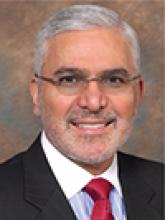Human nature is amazingly diverse. It is replete with behavioral quirks, oddities, eccentricities, and foibles. Most of these are idiosyncrasies that are outside the realm of psychopathology.
Frankly, the world would be a rather boring place without them. Contrary to the allegations that psychiatry medicalizes too many human behaviors that are in the “normal” range, only a small fraction of behavioral deviations are included in axis II of DSM-IV-TR. Unlike common peculiarities, the enduring personality disorders that psychiatrists diagnose and valiantly attempt to treat (no effective pharmacologic treatment has been approved for any of them) usually are significantly maladaptive and could lead to social or vocational dysfunction.
Many individuals exhibit “deplorable” behaviors that generally are frowned upon as a source of concern or are unlawful. Consider greed, bullying, chauvinism, fanaticism, extortion, demagoguery, or corruption. Very few, if any, of those who exhibit such fringe behaviors would consider seeking psychiatric help, although persons irked or injured by them wish they would. And what about bribery, power-seeking, malice, infidelity, laziness, mendacity, cheating, cruelty, narrow-mindedness, ruthlessness, and deceptiveness? Everyone has friends or relatives who exhibit such traits and flaunt them openly as a personal “brand.” Few such individuals would ever regard themselves as truly “flawed” or in need of change or professional help. In fact, those afflicted with such behavioral aberrations that are well outside the socially acceptable norms often are “successful” individuals who occupy prominent business or community roles despite their unendearing, even loathsome conduct. It sometimes appears that they have thrived despite their glaring lack of desirable social traits such as empathy, honesty, generosity, selflessness, and kindness.
Sometimes, it is not the oddities of behavior but extremes of political beliefs that can be most intriguing. They are reminiscent of delusions although they do not meet the DSM definition of delusional thinking (a fixed false belief inconsistent with one’s ethnic, cultural, educational, or religious background). Although real delusions are treatable with medications, para-delusional beliefs are not! A good example is the escalating prevalence of political fanaticism that has permeated society and dominated much of what used to be civilized discourse, even though most of the population continues to uphold middle-of-the-road political beliefs. The ideological polarization has even “infected” some media outlets, especially the free-wheeling blogosphere, where potentially venomous ideas are continuously spawned and instantly disseminated. Those who take diametrically opposite views often extend their conflicts over beliefs and ideas to personal hostilities and ad hominem attacks on “the other side.” This is an excellent example of how the entrenchment of beliefs and attitudes can directly shape behavior and transform an opinion into an “article of faith.”
Fanaticism is a long-standing human trait that has sparked wars and perpetuated prejudice and discrimination. Europe was ravaged by century-long wars instigated and fueled by religious fanaticism, proving that extreme beliefs can not only disrupt individual behavior but can impact cities, countries, and even the world, as depicted by World War II. Interestingly, when bizarre and fringe beliefs and behaviors are manifested on a large scale, it is regarded as political rather than psychopathological. Similarly, when religious beliefs become extreme, as sometimes happens in persons with acute bipolar mania, the unusual verbal output is regarded as a variant of religious exuberance rather than a psychiatric condition, which may delay medical treatment. It seems that in an age of intensifying secularism in developed western countries, political zealotry is the new religion!
Homo sapiens (wise man) is the only species that develops and harbors beliefs and whose behavior is inevitably guided, shaped, and determined by those beliefs. Obviously, some of our species’ beliefs are not consistently “wise,” but tenets can be vital to the health and survival of human individuals and communities. Émile Durkheim, the famous French sociologist, proposed in 1897 that “anomie,” or the lack of norms, values, and beliefs, is the main underpinning of suicide.1 On the other hand, psychiatrists generally attribute suicide to multiple other factors and anomie rarely is mentioned. However, Durkheim, like all humans, is entitled to his idiosyncratic belief!


